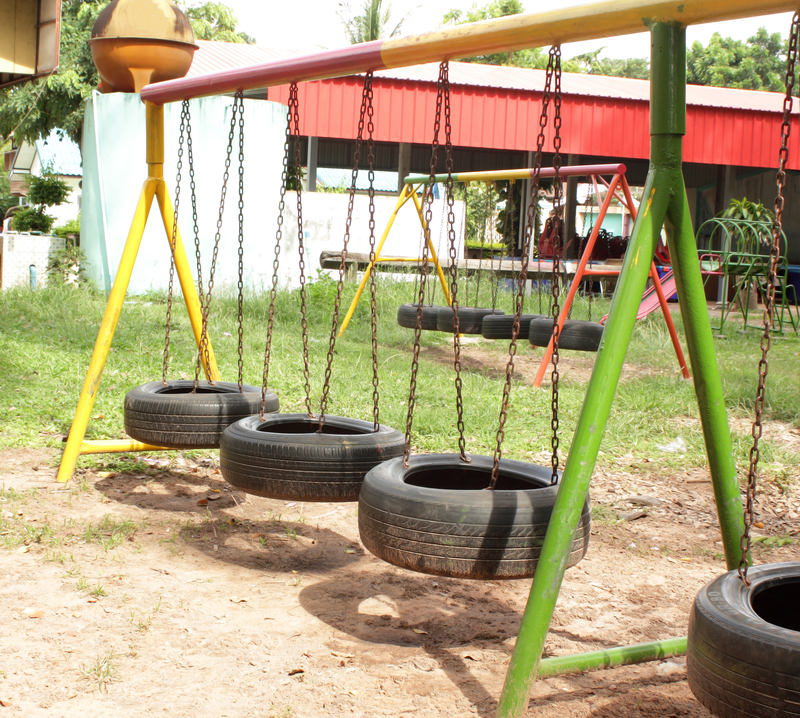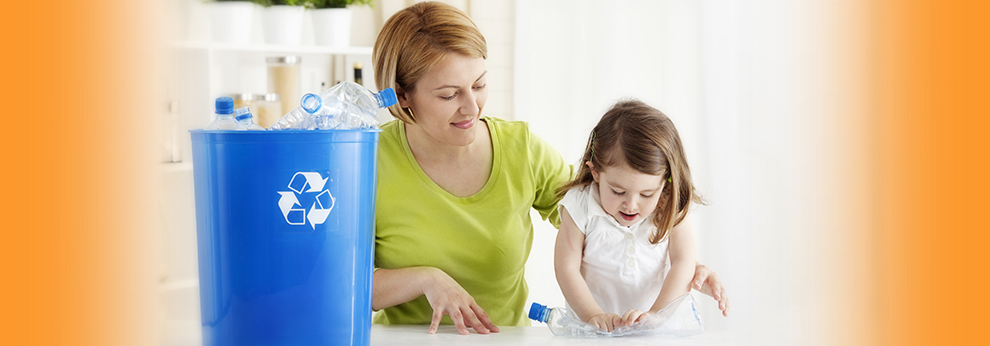Learn where to dispose of worn-out chargers safely
Posted on 02/09/2025
Learn Where to Dispose of Worn-Out Chargers Safely
Every year, millions of electronic chargers--those tangled cords powering our smartphones, laptops, tablets, and more--reach the end of their useful lifecycle. Yet, most people remain unsure about the right way to get rid of these obsolete devices. Disposing of old chargers safely is crucial for both environmental health and regulatory reasons. In this comprehensive guide, you'll discover reliable, eco-friendly options for handling your worn-out charging cables, adapters, and plugs.

Why Safe Disposal of Old Chargers Matters
Chargers may look innocuous, but they harbor components that can be harmful if tossed into household trash bins. Here's why you should dispose of worn-out chargers responsibly:
- Environmental Impact: Chargers contain metals and plastics that do not decompose easily. Improper disposal leads to landfill overflow and pollution.
- Toxicity: Electronic waste (e-waste) such as chargers could leach toxins like lead and cadmium into soil and water.
- Resource Recovery: Proper recycling enables the recovery and reuse of valuable materials such as copper, gold, and certain plastics.
- Legal Compliance: Many regions enforce strict e-waste disposal regulations to protect public health and the environment.
- Space Optimization: Keeping defunct chargers out of your drawers and off your shelves frees up valuable room in your home.
What Are Chargers Made Of?
Knowing the composition of a typical charger helps explain why safe disposal is essential. Chargers are generally made up of:
- Plastic Casings: Provide insulation and protect internal components.
- Metal Components: Wires inside are mainly copper; connectors may contain gold or nickel.
- Electronic Circuit Boards: Contain small amounts of precious metals and other chemicals.
- Rubber or PVC Insulation: Covers wires for safety and durability.
Because these materials can persist in the environment and sometimes contain hazardous substances, it's essential to dispose of old chargers safely and in the correct manner.
How NOT to Dispose of Worn-Out Chargers
Never:
- Throw chargers in your regular household waste bin.
- Burn chargers or cables in open fires or fireplaces.
- Leave them in public areas or toss them on the street.
These actions increase the risk of environmental hazards and may even carry legal penalties in jurisdictions with strict e-waste laws.
Where Can You Dispose of Old Chargers Safely?
Here is a list of the best safe disposal methods for worn-out chargers and tips on finding the right location near you.
1. Local E-Waste Collection Centers
Most cities and towns operate e-waste collection sites. Here, you can safely dispose of worn-out chargers and other small electronics:
- Search online for "e-waste recycling center near me".
- Call your local municipal waste management office to ask about drop-off hours and approved items.
- Check your city's official website for scheduled e-waste collection events.
Benefits: These centers understand how to process electronic components, minimizing environmental impact and maximizing recycling rates.
2. Retailer Take-Back Programs
National electronics and big-box retailers often offer chargers recycling programs.
- Best Buy: Accepts a wide array of electronics, including chargers, at most locations.
- Staples: Also participates in e-waste recycling initiatives, including for cables and adapters.
- Apple Stores: Recycle Apple-branded charging devices; some locations accept other brands, too.
Always call ahead or check their official website to verify that your local store currently participates in a take-back program and to learn about specific requirements.
3. Community Recycling Events
Many communities host special electronics recycling drives throughout the year. These events are perfect opportunities to dispose of old chargers safely:
- Check with your city, county, or neighborhood association for details.
- Universities, schools, and environmental groups also organize e-waste collection days.
Bring all your outdated chargers and related accessories to these drives and help keep e-waste out of the trash.
4. Mail-In Recycling Programs
If you cannot find a local option, several companies operate mail-in services for safely recycling e-waste, including chargers:
- TerraCycle: Specializes in hard-to-recycle materials and offers programs for consumer electronics.
- Call2Recycle: Primarily handles batteries, but some partner sites accept chargers as well.
- EcoATM: Kiosks found in select locations may accept certain accessories for recycling.
For these programs, you'll usually pack your unwanted chargers in boxes and ship them to a certified facility for processing.
Best Practices for Preparing Your Worn-Out Chargers for Disposal
Before you recycle an old charger, make sure to:
- Remove personal information. Some smart chargers or adapters store user data--check manufacturer instructions before handing over.
- Untangle cords and remove batteries. If your accessory includes a rechargeable battery (rare for generic chargers, but possible for docked systems), check for extra guidance.
- Bundle similar items together. Secure loose wires with twine or ties for easier sorting at recycling sites.
Quick Guide: What You CAN and CAN'T Recycle with Chargers
- CAN Recycle: USB charging cables, power adapters, wall bricks, laptop chargers, docking station power supplies.
- CAN'T Recycle: Large household appliances, non-removable batteries, items with toxic liquid leaks--these often need special handling.
How to Find Reliable E-Waste Recycling Locations Near You
The easiest way to ensure safe charger disposal is to use online directories and official resources:
- Earth911: Enter your zip code and item type (e.g., chargers) to get a list of certified e-waste drop-off centers nearby.
- RecycleNation: Another great tool for locating local recycling options.
- Your city's official waste management website or hotline.
These sources offer up-to-date and accurate information, minimizing confusion about where and how to properly discard your old charging cables and power blocks.
International Options for Disposing of Chargers
If you're outside the US, there are still numerous opportunities for safe disposal of chargers:
- Europe: Look for WEEE collection points (Waste Electrical and Electronic Equipment Directive) in retail stores and recycling points.
- Australia: Use the National Television and Computer Recycling Scheme (NTCRS) drop-off points.
- Asia: Check with municipal e-waste initiatives or major electronics chains.
- India: Companies like Karo Sambhav and government-authorized e-waste handlers provide safe recycling services.
Creative Alternatives: Repurpose Before You Dispose
Before recycling, ask yourself if your worn-out charger could serve another purpose.
- Spare Parts: Salvage wires, connectors, or power bricks for school projects, crafts, or tinkering.
- Charging Stations: Combine functional parts from several chargers to create a multi-device charging station.
- Donation: Some schools, charities, or community centers accept functional chargers for repurposing or use as backups.
- Art Projects: Craft enthusiasts turn old cables into jewelry, sculptures, or organizers. Find inspiration online!
However, if the charger is beyond repair or repurposing, safe, certified disposal remains the best choice.
Understanding the E-Waste Lifecycle: What Happens After Recycling?
Ever wonder what happens to your old charger after you leave it at a recycling center?
- Initial Sorting: Technicians sort chargers and cables by type--plastic, metal, electronic parts.
- Material Recovery: Specialized machines and manual workers dismantle cords, extract metals like copper and gold, and sort plastics.
- Processing: Materials are cleaned and sent to manufacturers as recycled raw inputs for new products.
- Hazardous Waste Management: Any hazardous or non-recoverable materials are handled per strict environmental standards, keeping toxins out of landfills.
This process underscores the importance of disposing of worn-out chargers in responsible ways--your small action feeds into a massive global effort to reduce e-waste and its hazards.
Common Mistakes to Avoid When Getting Rid of Chargers
- Putting Chargers in Regular Recycling Bins: Most curbside blue bins do NOT accept electronics and may result in rejected loads.
- Leaving Chargers Unattended: Don't leave cords or adapters on the curb with household waste or in public spaces.
- Ignoring Local Laws: Some locations require e-waste certification for drop-off--double-check local rules first.
- Mixing Different Types of Electronics: Sorting your recyclable items helps processors work more quickly and efficiently.
Summary: Your Checklist for Safe Charger Disposal
- Locate a certified e-waste collection point or retailer take-back program in your area.
- Prepare your old chargers--bundle, remove personal info, separate from batteries.
- When possible, donate, repurpose, or gift unused but working chargers.
- If all else fails, check mail-in programs or manufacturer recycling schemes.
- Avoid tossing chargers in the trash or regular recycling bin--choose eco-friendly disposal.
By following these steps, you'll protect your environment, comply with the law, and support responsible recycling efforts worldwide.

Frequently Asked Questions About Disposing of Chargers
Can I throw old chargers in the trash?
No; chargers should be recycled through certified e-waste channels to prevent pollution and recover valuable materials.
Do charger recycling programs cost money?
Most e-waste drop-off locations and retailer take-back programs are free for small accessories like chargers and cables. Some mail-back programs may charge a shipping fee.
Can I recycle all brands of chargers?
Yes. Generic, brand-specific, and even damaged chargers are accepted by most recycling facilities and take-back programs.
Where can I find more information about local recycling laws?
Visit your city or state's official waste management website, or contact your local environmental agency.
Conclusion: Make Safe Charger Disposal Your New Habit
Each time you part with a worn-out charger, you're taking a vital step toward a cleaner environment and a sustainable future. By learning where to safely dispose of old chargers, you ensure that precious resources are reused, toxins are managed, and we collectively reduce the burden of growing e-waste.
Make it your habit to research, prepare, and drop off your retired chargers at certified locations every time. Share what you've learned with friends and family--together, we can spark a positive change and keep our world charged up, safely and responsibly.





